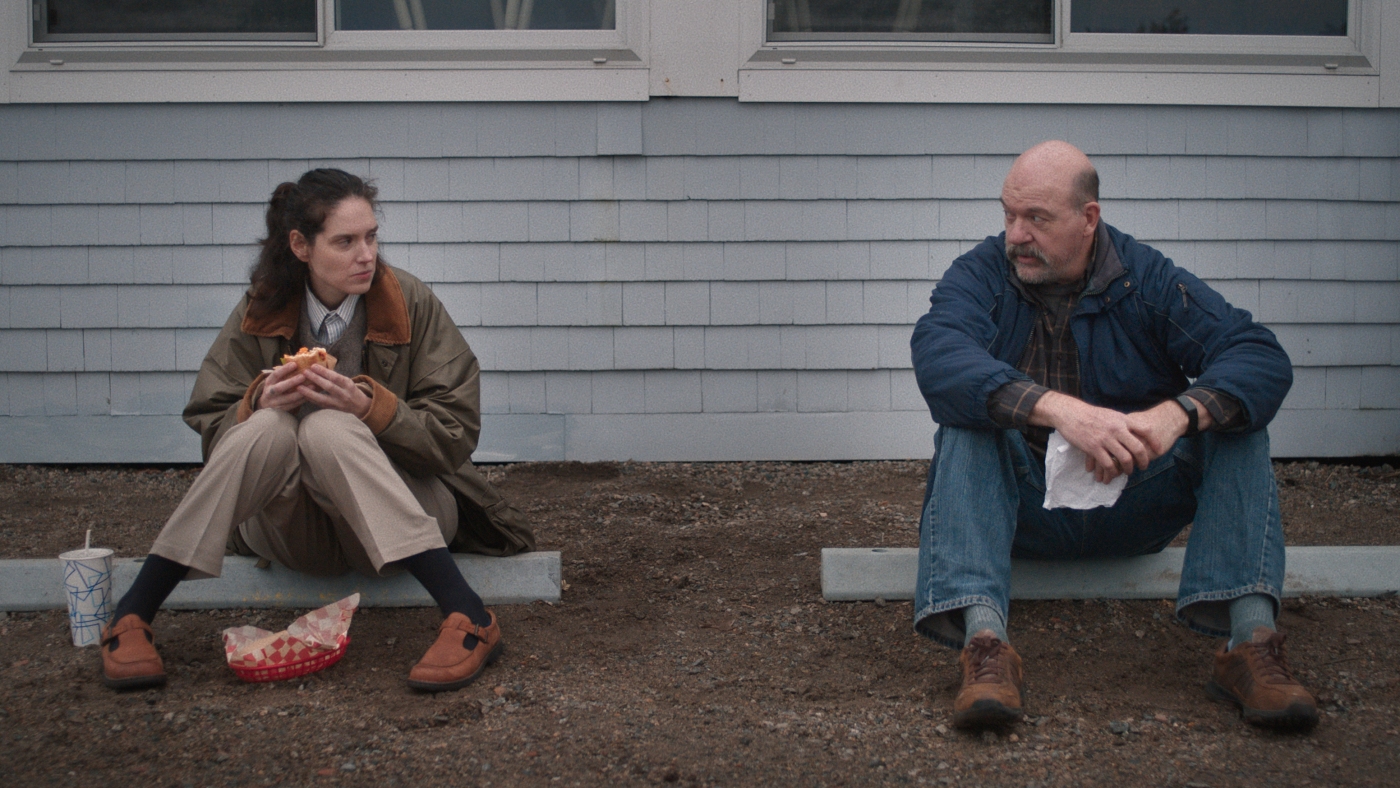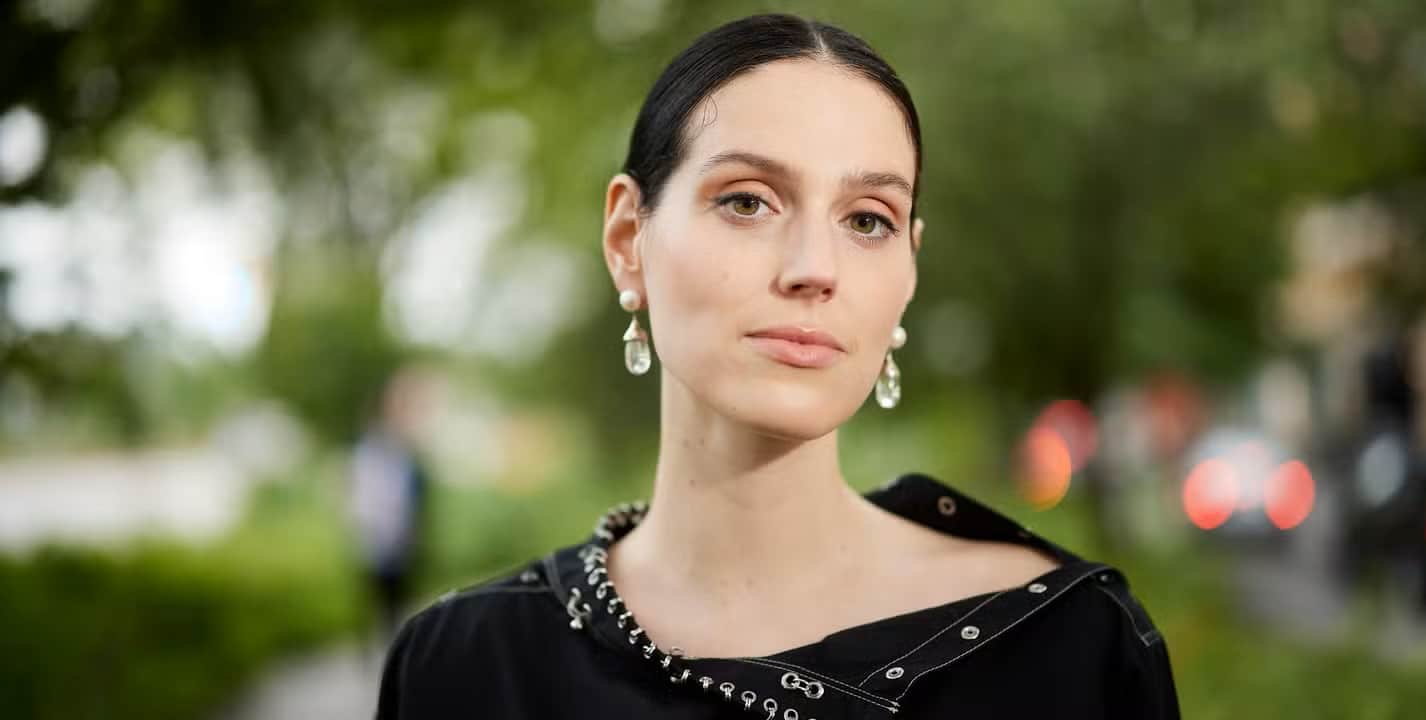Table of Contents
A New Voice With A Strong Message Tackles A Tough Topic
In a bold new creation, a new and vibrant voice in the realm of filmmaking is shaking things up by creating a black comedy which, in a witty way, deals with the serious matter of sexual assault and its following trauma. The picture, Sorry, Baby, chronicles the life of Agnes, one of the New England academicians, who get lost in the woods of her life after her college tutor sexually assaulted her. Eva Victor is making a big statement with her first feature film: not only was the screenplay hers, and she played the lead, she also directed the whole thing.
When it comes to such a personal and diverse venture, one can’t see why Victor would not be already getting similar remarks like the ones given to Phoebe Waller-Bridge or Michaela Coel. While Victor appreciates the awarding of such praise, they also state that the comparisons “aren’t ultimately helpful,” hinting at wanting to stand out as their own person.
Victor’s tale leading to the director’s seat is definitely a 21st Century success story. They grabbed people by the eyeballs with viral comedy videos they produced on X. And it was precisely those videos that attracted the attention of an unexpected yet very powerful fan: Oscar-winning filmmaker Barry Jenkins. Jenkins was the person who recognized the unpolished talent in Victor and was the one who urged them not only to do the writing but also to direct it themselves.
A “True Voice” in a Binary World
After making a big noise and getting critical acclaim at both Sundance and Cannes, Eva Victor was being walked on the red carpet with the sound of the words “superstar” gently thundering in her ears. However, such recognition especially for a multi-talented personality who is not only the writer and director but also the main actor, was coupled with a rapid and intense flow of comparisons with other creative geniuses of the entertainment world.

Being compared to the likes of Phoebe Waller-Bridge, Michaela Coel, and Greta Gerwig is like a double-faced coin for Victor. On the one side of the coin, they see the huge compliment. “One thing that made [those people] very special and that we admire most is that they have just the one true voice,” they said, and went on to admit, “that part of the comparison means the most to us.”
Yet Victor also provides a more nuanced and complex opinion on why these comparisons, although being a source of joy, could also fence them in. “Being non-binary, I do use ‘they’ and ‘she’ pronouns and I think it’s quite ironic that we feel very binary when it comes to comparisons,” they said. “The people are so keen that I fit into the category of women.”
The trio make a very keen observation that men such as Denzel Washington and Albert Brooks have not only been creating their own films for ages but the way the story is told about them is totally different. They do comment on Jodie Foster as an additional example of an actress who changed to the director’s side along with them, indicating that the transition isn’t new, yet the way of categorizing frequently is.
In the end, Victor conveys to the audience a sentiment of thankfulness coupled with a slight request for a more complex understanding of the issue. “Maybe the comparisons are not really so helpful in the end,” they said. “However, I am extremely honoured because they are the people whom I look up to the most. By and large, it is a very, very delicate comparison.”
Healing from “The Bad Thing”
The master mind behind Sorry, Baby is a one-of-a-kind artist with a versatile talent. Eva Victor through studying acting and playwriting at Northwestern University started out her career. She then went on to New York and made her mark first with the feminist satirical website Reductress and later she got a part in the hit Showtime series Billions.
Their first venture into the world of cinema, Sorry, Baby is a tragic-comedy of a lifetime which closely follows Agnes, the literature student in her twenties who gets sexually assaulted by her professor. The film, however, portrays the handling of this disaster differently and effectively. The scene of the assault, hereafter called “the bad thing,” is kept short and the perpetrators are not shown. They can be seen as the point of the story, the incident that all the characters’ actions are based on, but the narrative never depicts it in a gruesome way.

Writing Sorry, Baby, was like “casting my soul on the page,” in the words of Victor, and yet they didn’t reveal if the plot of the film is a reflection of their personal life, they did accept that the work was a feat of daring. “Managing your private creative process while being very public about it is very demanding, ” they said to Sky News. “It leaves you very open.”
Victor found it hard to ignore the widespread nature of sexual assault being “one huge, big societal tragedy” and she wanted to tell a different story. “What I wanted with the film was to start a story about the process of healing,” explained, “rather than to show more of the same kind of violence.” Her main focus was always the human dimension that was to be depicted through the journey of the characters. “Honestly it is really to think like Agnes and I do what is the most honest to her story that I find healing.”
Punching Up with Humor and Heart
The sorry, baby, one of the strongest features of the Sorry, Baby is basically how it does not hesitate to show the failures of the system in which the survivors are entangled. A hospital that refuses to listen, a university with too many rules and regulations: the film portrays institutions that pass abuse without realizing it or solving it.But instead of sticking to the shadows, these sequences are treated with a surprising and a touching lightness of expression, a decision that differentiates it from the majority of the trauma narratives.
To Victor, that humor is a tool. It’s not about making a joke of the situation, but rather about using it to better keep the accountability of those in power. “Humour in those scenes is used as a tool to hit people in power,” they say, “and these institutions that are the cause of a really hard, sad time for people.”
The film gets there in a really difficult time, with people like Harvey Weinstein and P Diddy about to have their own scandals. However, when asked about the position of the MeToo movement today, Victor seems to be quite reflective and rather reluctant to characterize themselves as a spokesperson. In spite of the heaviness of the themes dealt with in the film, their attention is directed to the art and the story instead of being the face of a movement.

A Hopeful Vision for an Imperfect World
When it concerns such major issues of the MeToo movement as a whole, Eva Victor very carefully chooses their words. They don’t prompt a heated reaction with a single fiery take but rather deliver a deeply optimistic answer which, along with their film, perfectly resonates with the world of a hopeful.
In a time where the demand for harsh measures is loud and clear, Victor chooses to focus on a thing that is much more radical – healing and human connection.
“I feel that there is a need for some kind of rehabilitation for everybody,” they said, “I am hardly ever interested in violence and punishment but always in love and trying to support each other emotionally.”
This powerful Sorry, Baby, which is currently playing in UK cinemas, is the very core of their impassioned statement.



